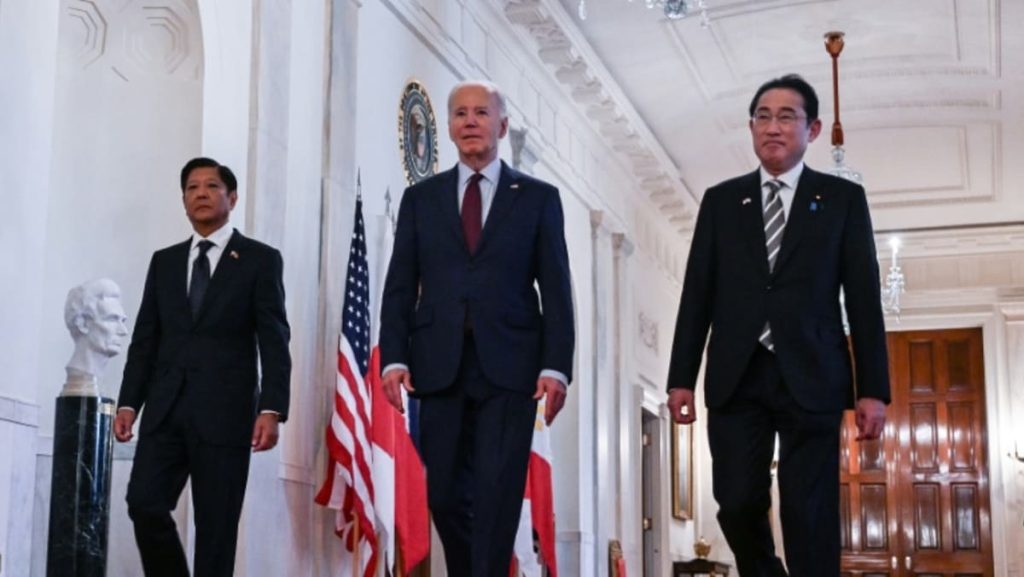Beijing has come under fire from the United States, Japan, and the Philippines for its actions in the South China Sea, with a recent trilateral meeting in Washington focused on expressing “serious concern” over China’s behavior. The leaders of the three nations condemned Beijing’s actions as “dangerous and aggressive,” highlighting the ongoing tensions between Chinese and Philippine vessels in the disputed region. US President Joe Biden pledged to defend the Philippines from any potential attacks in the South China Sea, underscoring growing fears of a wider conflict.
China has long maintained its claim over almost the entire South China Sea, disregarding competing claims from countries like the Philippines and other Southeast Asian nations. The joint statement issued by the US, Japan, and the Philippines reflects the international community’s growing unease over China’s assertive actions in the region. The White House summit served as a platform for these nations to voice their concerns and reaffirm their commitment to upholding the rule of law and freedom of navigation in the South China Sea.
In response to the criticism from Washington, Beijing has defended its actions in both the South China Sea and the East China Sea as “appropriate and lawful.” Chinese foreign ministry spokesperson Mao Ning emphasized that China opposes any maneuvers that provoke confrontation or threaten the strategic security and interests of other countries. She criticized the trilateral cooperation between the US, Japan, and the Philippines, arguing that it could harm the interests of China and disrupt regional stability if it leads to the exclusion of other nations.
China’s reaction to the joint summit highlights the deepening divide between Beijing and its regional neighbors, as well as the broader implications for US-China relations. The ongoing tensions in the South China Sea have raised concerns about the potential for a larger conflict in the region, with the US and its allies seeking to counter China’s influence in the area. While the US has reaffirmed its commitment to defending its partners in the region, China has pushed back against what it sees as attempts to undermine its sovereignty and territorial integrity.
The dispute over the South China Sea remains a contentious issue in the Asia-Pacific region, with competing territorial claims and maritime disputes fueling tensions between China and its neighbors. The recent trilateral meeting in Washington signals a united front against Beijing’s actions in the region, with the US, Japan, and the Philippines voicing their concerns and calling for respect for international law. As China continues to assert its claims in the South China Sea, the risk of a potential escalation remains a key concern for the international community.
Overall, the standoff in the South China Sea underscores the complex dynamics at play in the region, with competing interests and overlapping claims creating a volatile environment. As the US, Japan, and the Philippines push back against China’s actions, Beijing is likely to continue defending its position and asserting its sovereignty in the contested waters. The international community will need to monitor the situation closely to prevent any escalation that could lead to a broader conflict and threaten regional stability.


